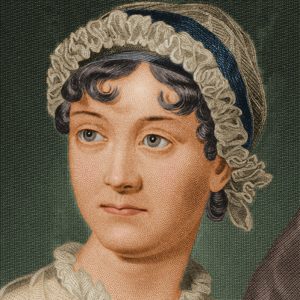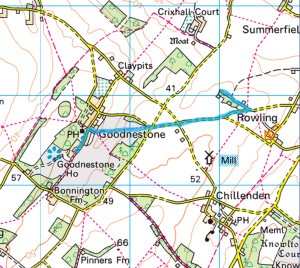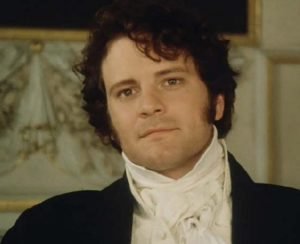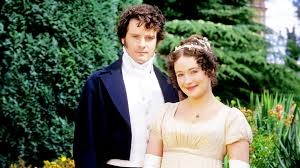
Good morning, dear readers! I hope you enjoy revisiting one of my favorite posts from a few years ago. I have updated the game at the end and can’t wait to see your new comments below. Happy Thursday!
 To love and appreciate something, you really have to understand it; understand the layers, choices, and in-depth intricacies of the whole package. Whether it’s why someone uses cayenne pepper in hot chocolate, or ranch dressing instead of ketchup on their fries, even the smallest choices can be impactful.
To love and appreciate something, you really have to understand it; understand the layers, choices, and in-depth intricacies of the whole package. Whether it’s why someone uses cayenne pepper in hot chocolate, or ranch dressing instead of ketchup on their fries, even the smallest choices can be impactful.
As a writer, people often ask how I choose my characters’ names. Do I look them up in a baby book, try to find popular names in movies, or just use a name from someone I know? The answer is yes to all of those. It really depends upon the feeling I’m trying to capture. Names are so significant to the overall story, that it’s important to ‘get it right.’
I remember once reading a thread in a FB conversation and Abigail Reynolds said she looks at maps of England to find the names of villages. Another person commented on the obscure nature of some of the names to non-British readers. That got me thinking…Why did our dear Jane choose Meryton, Hertfordshire, and Kent for some of the locations in Pride and Prejudice? Could the Bennets have happily resided in Nether Wallop or Upton Snodsbury? What if Rosings was located in Pucklechurch or Picklescott?

Map of walk – Goodnestone is on the left, Rowling on the right. The red dotted pathways are footpaths.
The villages and towns, although with some of their names altered, might still have been identifiable to Jane’s readers. But what would have been even more impressive, would be the names of the characters themselves.
Jane needed a strong, powerful name older than England itself for the hero of Pride and Prejudice. Hence Fitzwilliam Darcy. According to Houseofnames.com, Darcy originated as D’Arcy from France and was brought over with William of Normandy in 1066. You remember that guy? The one they called ‘The Conqueror.’ Yup. The D’Arcys were such great friends with old Wills, that he gave them land and wealth for supporting him.
And the name Fitzwilliam? Wait for it…equally as old and important. The Fitzwilliam family had also been granted lands due for their loyalty to William the Conqueror. In addition, it was believed Alrad Fitzwilliam might have been the son of King William Rufus of England, as Fitzwilliam means ‘son of William.’ The Fitzwilliams still hold an Earldom to this day! They’re pretty legit!
 So if you read this novel shortly after publication, and saw those names, it would be the same as if you were reading a novel today and the main character was named Kennedy Vanderbilt, or Carnegie Rockefeller!
So if you read this novel shortly after publication, and saw those names, it would be the same as if you were reading a novel today and the main character was named Kennedy Vanderbilt, or Carnegie Rockefeller!
Are names really that important? Would ‘That which we call a rose by any other name [truly] smell as sweet…’? I mean, if Mr. Darcy wasn’t actually ‘Mr. Darcy’ but instead Horace Fogbottom, would we swoon? Can you imagine Colin Firth dripping from his dip in the pond standing before a flustered Jennifer Ehle and her startled reply of, “Mr. Fogbottom” making our knees weak?
Or if Elizabeth Bennet was not ‘Elizabeth Bennet’ but instead Prudence Bristlewhite? Would Matthew Macfadyen’s velvety voice have given us the same goosebumps while professing his love in the rain? We wanted her to say yes! We wanted to be her…but not named Prudence.
Thank goodness Jane Austen was a wordsmith and more in tune with character needs and not trends of the time. But surprise! Our dear Jane is actually a trend setter! According to Parent.com, there are 100 names inspired by Jane Austen! Some like Elizabeth, Charlotte and Marianne are obvious choices, but there are even a few rogue ones as well. I have taught for over twenty years and have never met a Fairfax, Benwick or Thorpe. (BUT I have taught a Willoughby. Female but Willoughby none the less!)

Could you have created the melodious names which were written into the annals of great literary novels? Check out our charts below and leave your own character names in the comments.



8 comments
Skip to comment form
Wow well done
Author
Thank you, Wendy. I’m grateful you enjoyed my post. Have a lovely day. 🙂
My heroine is Catherine Bennet of Netherfield and my hero is George Darcy of Donwell Abbey! I’ve noticed a number of local Derbyshire village names used in JAFF and yes, I do think a name makes tremendous difference to how we think of a character but I also think some characters can affect how we think of a name! Mr Collins for example!
Author
Glynis, my dear, I 100% agree! Now, any time I hear the name ‘Collins’ I cringe a little bit. 🙂
A name may make a child confident or be teased by classmates which may cause him or her to loose confidence and hide in the shadows. I read that Fitz means illegitimate son of. Does anyone know if this is true? There were plenty of sons (and daughters) born “on the wrong side of the sheets “ that were given titles and were recognized in society. Often mistresses were kept by the ultra wealthy which was no secret. I do think the name Fitzwilliam Darcy is appropriate for his personality and importance. Much better than Herbert Smith might have been. 😊 Well done Jane!
Author
Meg, that is a good question. From my research, “Fitz” means ‘Son of.’ I have not heard it meaning the illegitimate son, but it could surely be so. I love the depth of the name Fitzwilliam Darcy, and when I teach P&P to my students I attempt to impress upon them how people in Jane’s time would have read that name and KNOWN this was a man of significance. I use the example that if Jane had written it today, she could have named him “Charles Windsor” for British readers and “Kennedy Vanderbilt” for American audiences, and each group would have known that he was from an important lineage. Have a wonderful day! 🙂
Jane Fairfax of Longbourn & Charles Weston of Lucas Lodge. For the geography in the books I like to try to guess where in real life they are just to give myself a visual idea how far things really were and some books the distances seem to be way off given the time or lack there of for travel between.
Author
I agree, Miss Fairfax of Longbourn. 🙂 I also love looking through the maps to see the distances between places. I also imagine the challenges of travel. Have a wonderful day!